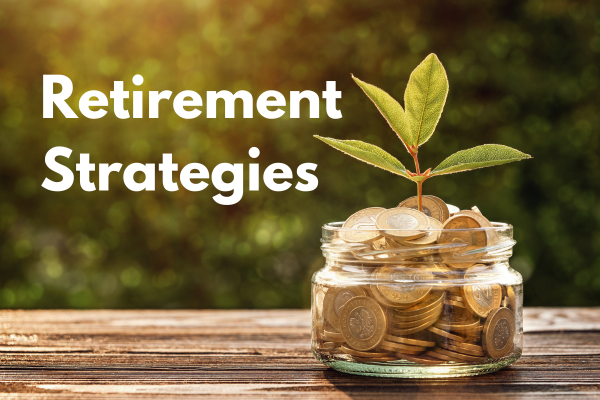This is how much money you should have saved for retirement

How much money should you have set aside for retirement?
The answer to that question depends on a variety of factors (individual goals, lifestyle, expected retirement age are a few examples). However, there are some general guidelines to consider.
With movements like FIRE (Financial Independence Retire Early) and DINK (Dual Income No Kids), millennials and GenZ are eying retirement much earlier than previous generations.
Whether you’re trying to retire by 35 or just retire at the current average retirement age of 67, you may be wondering how much you should have saved.
How much should you have saved for retirement based on your age?
Despite expert advice to save for retirement as early as possible, many of us don’t start thinking about retirement until our early 40s. That said, there are milestones you can hit before then to set yourself up for success.
By your 30s it is recommended to have the equivalent of your annual salary set aside for your retirement. This acts as a foundation for the rest of your retirement finances.
By your 40s it is often suggested by financial experts that you aim to have three times your annual salary saved to take advantage of the power of compounding over time.
In your 50s the goal is to have around six times your annual salary set aside for retirement. This amount should allow you to maintain your lifestyle upon retirement.
In your 60s financial advisors recommend having 10 times your annual salary set aside for retirement to provide financial security as you near retiring age.
Here are the retirement milestones you should aim for according to the Social Security Administration.
Of course, these guidelines are built on the assumption that you start saving early and continue to do so consistently throughout your career. Additionally, it is important to consider other sources of income during retirement such as social security
benefits and any pension plans.
To gain insight into a retirement plan tailored to your specific needs, you may want to consult with a financial advisor who can consider your personal situation, retirement goals, and current savings to give you advice that suits your needs and goals.
What are the best risk-free investments for retirement?
Most investments involve some degree of risk, but there are a few low-risk investment options that you can consider:
Certificates of Deposit (CDs): CDs (called “share certificates” by credit
unions) are time deposits offered by banks and credit unions that typically have fixed interest rates and a predetermined maturity date. These are insured by the Federal Deposit Insurance Corporation (FDIC) up to certain limits, making them relatively
safe.
Money Market Accounts (MMAs): Money market accounts are savings accounts
that usually offer higher interest rates than regular savings accounts and are often considered low-risk because they invest in highly liquid and stable instruments like government securities and high-quality-short-term debt.
Treasury Securities: U.S. Treasury securities are often considered low-risk investments as they are backed by the US government. Treasury bonds, for example, offer fixed interest rates and are considered one of the safest investments available.
Fixed Annuities: These are insurance contracts where you invest a lump sum and receive regular payments over a specified period or for life. They offer a guaranteed minimum interest rate and can provide a steady stream of income during retirement.
While these investments are considered low risk, they may offer lower returns compared to investments with higher risk. The trade-off for lower risk is often lower potential growth or inflation protection. It is beneficial to maintain a diversified investment
portfolio that has a balance between risk and potential returns according to your risk tolerance and retirement goals.
Take small steps to prepare for retirement
While you may not be able to set aside even five percent of your income for retirement each month, every little bit can help! By taking small steps now, you will gain the confidence and focus you need to retire when you want to and on your own terms so you can enjoy your golden years comfortably.
Get free expert advice
Have questions about how to improve your financial health? CAFCU can help! Whether you are a member or not, you can schedule a free financial coaching session with one of our certified financial wellness representatives.
Related Resources
Disclaimer: You should be aware that certain types of funds might carry greater investment risk than other investment funds. If you have any doubts as to the merits of an investment, you should seek advice from an independent financial advisor.

